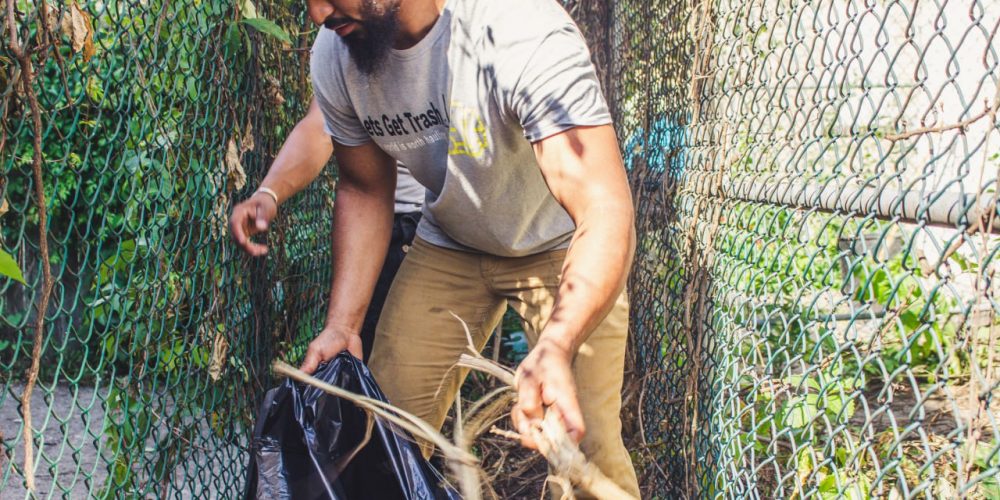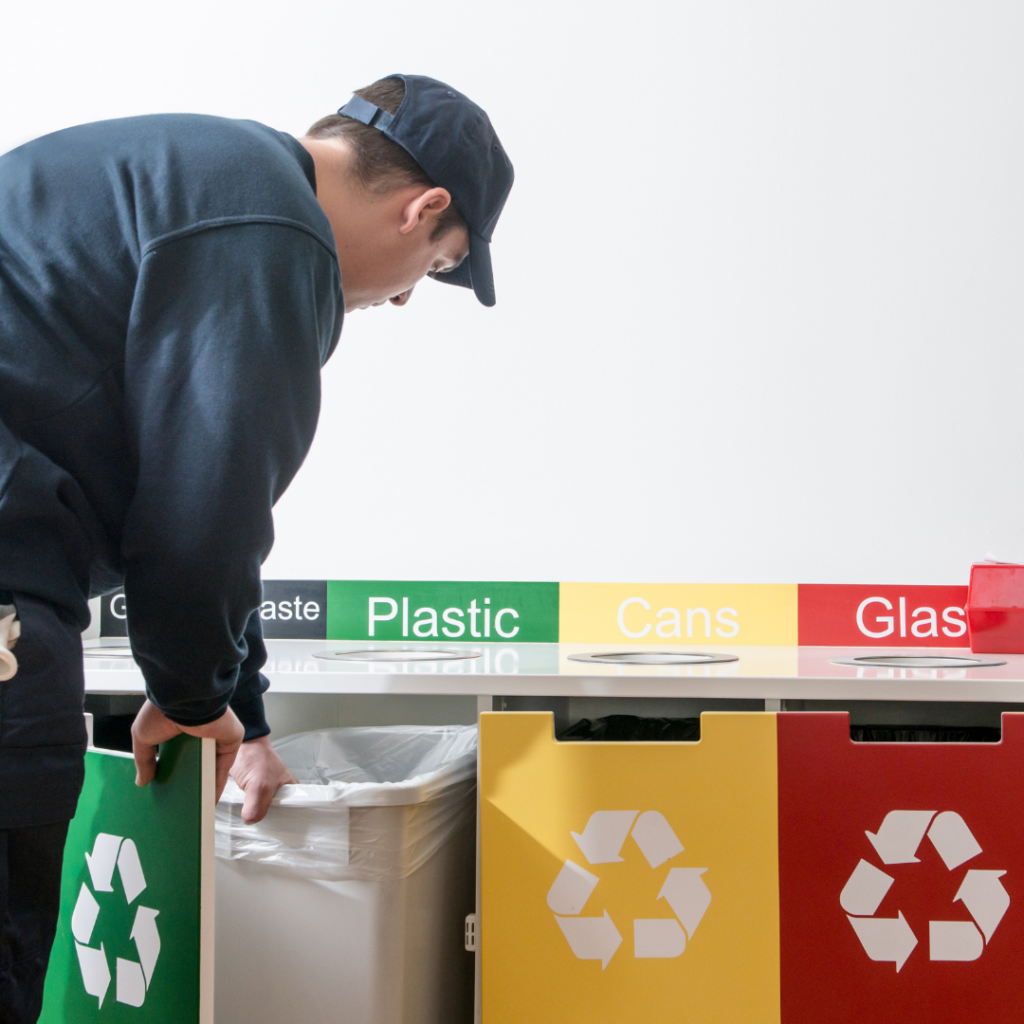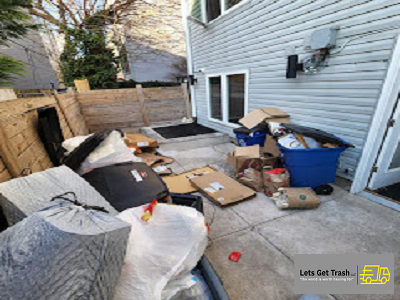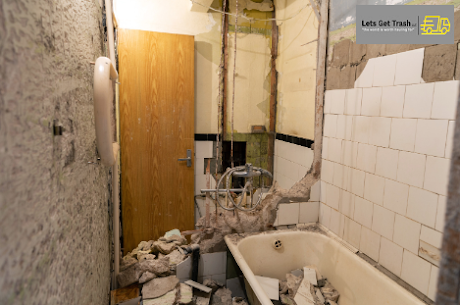Proper garbage collection stands as a cornerstone of community health and environmental preservation. Efficient waste management not only maintains the city’s aesthetic appeal but also safeguards public health by preventing the spread of diseases and minimizing pollution. With a burgeoning population and diverse urban landscape, Philadelphia faces unique challenges in waste disposal. From residential neighborhoods to bustling commercial districts, the importance of systematic garbage collection cannot be overstated. This article delves into the critical role that effective waste management plays in sustaining Philadelphia’s livability, environmental integrity, and overall well-being. Join us as we explore the intricacies and significance of ensuring proper garbage collection practices throughout the city.
Enhancing City Beauty and Pride
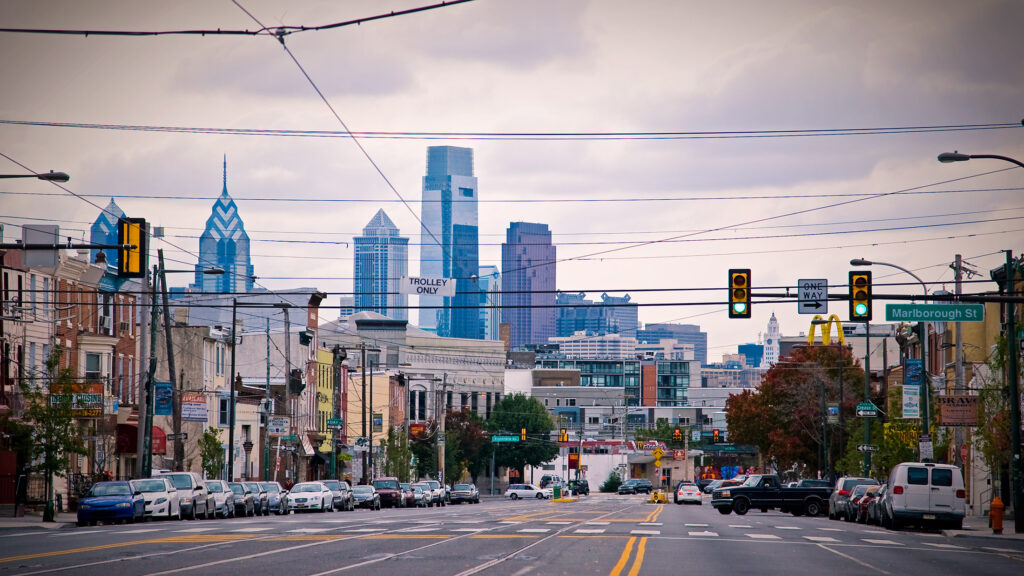
Enhancing the beauty and pride of Philadelphia goes beyond mere aesthetics; it reflects the city’s character and spirit. Proper garbage collection ensures that our historic streets, iconic landmarks, and vibrant neighborhoods remain free from unsightly litter and debris. Cleanliness fosters a sense of pride among residents, instilling a collective responsibility to preserve and showcase the city’s rich heritage. By maintaining clean streets and public spaces, Philadelphia not only enhances its visual appeal but also reinforces its identity as a welcoming and dignified metropolis. This commitment to cleanliness not only uplifts the morale of residents but also leaves a lasting impression on visitors, showcasing Philadelphia as a city that values its heritage and takes pride in its surroundings. Ultimately, enhancing city beauty and pride through proper garbage collection is a testament to our respect for our shared spaces and our dedication to preserving Philadelphia’s legacy for generations to come.
Protecting Public Health
Preventing Spread of Diseases
Garbage left uncollected can harbor harmful bacteria, viruses, and other pathogens. Decomposing organic matter produces foul odors and attracts pests such as rats, flies, and mosquitoes, which are vectors for diseases like cholera, dengue fever, and West Nile virus. Proper garbage collection is essential to mitigate these health risks and prevent the spread of infectious diseases within our community.
Minimizing Respiratory Issues
In addition to the direct health threats posed by pathogens, decomposing garbage emits noxious gases and particulate matter into the air. These pollutants can exacerbate respiratory conditions such as asthma and bronchitis, especially among vulnerable populations like children, the elderly, and individuals with pre-existing respiratory ailments. By ensuring timely removal of garbage, we can minimize air pollution and safeguard respiratory health across Philadelphia.
Reducing Risk of Accidents and Injuries
Improperly disposed of waste can create physical hazards in public spaces. Sharp objects like broken glass and metal cans, as well as hazardous materials like chemicals and needles, pose risks of cuts, puncture wounds, and exposure to toxic substances. Proper garbage collection not only removes these hazards from our streets and parks but also ensures that they are disposed of safely and appropriately, preventing accidental injuries and potential contamination.
Preserving Water Quality
Garbage left uncollected can leach harmful chemicals and contaminants into the soil and waterways, polluting our drinking water sources and ecosystems. This contamination can have far-reaching consequences for public health, including gastrointestinal illnesses, reproductive disorders, and even long-term chronic conditions like cancer. By preventing pollution through effective waste management practices, we safeguard the health of both current and future generations in Philadelphia.
Addressing Public Health Disparities
Inadequate garbage collection disproportionately affects marginalized communities, exacerbating existing health disparities. Neighborhoods with limited access to sanitation services are more likely to experience higher rates of illness and environmental injustice. By prioritizing equitable distribution of garbage collection resources and investing in underserved areas, we can address these disparities and ensure that all residents have access to clean and healthy living environments.
Supporting Environmental Sustainability

Protecting public health is paramount when considering the importance of proper garbage collection in Philadelphia. The accumulation of waste not only presents a visual eyesore but also poses serious health hazards to residents and visitors alike.
- Reducing Landfill Waste: Proper garbage collection in Philadelphia facilitates the sorting and recycling of materials, diverting a significant portion of waste away from landfills. By encouraging recycling and composting, the city minimizes the amount of trash destined for disposal sites, thereby extending the lifespan of existing landfills and reducing the need for new ones.
- Conserving Natural Resources: Recycling materials such as paper, plastic, glass, and metal reduces the demand for virgin resources. For instance, recycling one ton of paper can save approximately 17 trees, 7,000 gallons of water, and numerous gallons of oil and energy. By conserving these valuable resources through effective waste management practices, Philadelphia contributes to the preservation of natural ecosystems and reduces its ecological footprint.
- Mitigating Pollution: Improper disposal of waste can lead to pollution of air, water, and soil, posing serious environmental hazards. By ensuring that garbage is collected and disposed of properly, Philadelphia helps mitigate the release of harmful pollutants into the environment. Moreover, recycling reduces the need for incineration and the emission of greenhouse gases, contributing to cleaner air and a healthier environment for all residents.
- Promoting Circular Economy: Effective garbage collection is a crucial component of a circular economy, where resources are reused, recycled, and repurposed to create a closed-loop system. By collecting recyclable materials separately and reintroducing them into the production cycle, Philadelphia supports the concept of circularity, wherein waste is viewed as a valuable resource rather than a disposable burden. This approach not only conserves resources but also stimulates innovation, job creation, and sustainable economic growth within the city.
Protecting public health is a multifaceted aspect of proper garbage collection that encompasses disease prevention, air and water quality management, injury prevention, and addressing social inequities. By prioritizing these efforts, Philadelphia can create a healthier and safer environment for all its residents to thrive.
Boosting Economic Development
Attracting Investment and Business Growth
Clean streets and well-maintained public spaces are essential factors that businesses consider when choosing locations for their operations. A city with efficient garbage collection services sends a positive signal to investors, indicating a commitment to maintaining a high standard of living and infrastructure. As a result, businesses are more likely to invest in Philadelphia, leading to job creation, increased economic activity, and overall growth.
Strengthening Tourism and Hospitality Industries
Tourists are drawn to destinations that offer clean and welcoming environments. By ensuring proper garbage collection and maintaining cleanliness in popular tourist areas, Philadelphia can enhance its appeal as a travel destination. Clean streets, parks, and attractions not only attract more visitors but also encourage them to stay longer and spend more money on accommodations, dining, and entertainment. This influx of tourism revenue directly contributes to the city’s economic development.
Improving Property Values
Well-maintained public spaces and clean streets contribute to higher property values in surrounding areas. Homebuyers and renters are willing to pay more for properties located in neighborhoods with good sanitation services and a high quality of life. As property values increase, homeowners see greater returns on their investments, and local governments can generate additional tax revenue to fund essential services and infrastructure projects, further fueling economic development initiatives.
Conclusion
The importance of proper garbage collection in Philadelphia cannot be overstated. As the heartbeat of our city, efficient waste management is not only essential for cleanliness and hygiene but also for preserving our environment and community health. Let’s Get Trash understands the significance of this responsibility. With our dedicated garbage collection service, we strive to uphold the highest standards of sanitation while contributing to a cleaner and safer Philadelphia. Remember, it’s not just about disposing of waste; it’s about doing it responsibly and sustainably. So, whether you’re a homeowner, business owner, or property manager, trust Let’s Get Trash to handle your garbage collection needs promptly and professionally. Together, let’s keep Philadelphia clean, green, and thriving. Contact us today at (215) 791-6239 to experience the difference!


